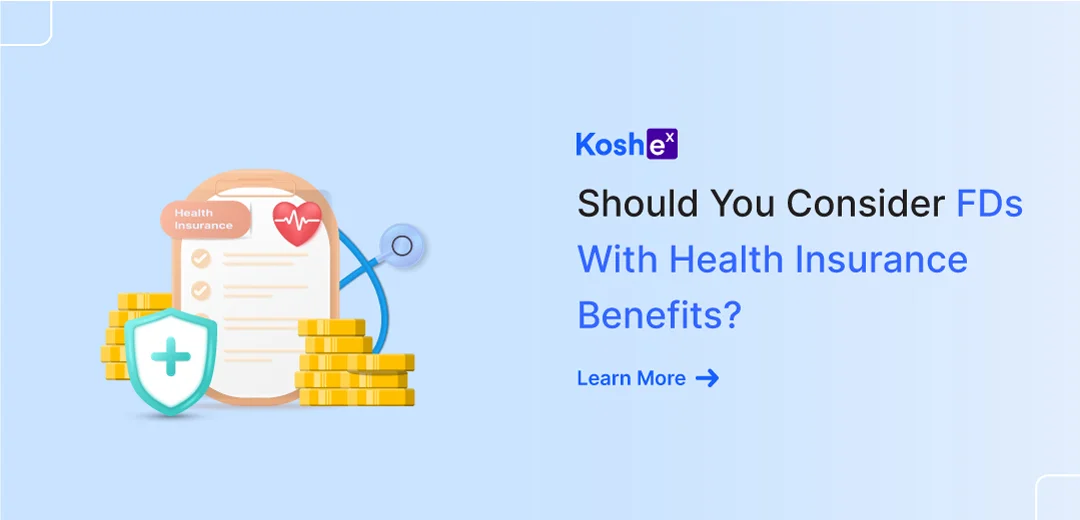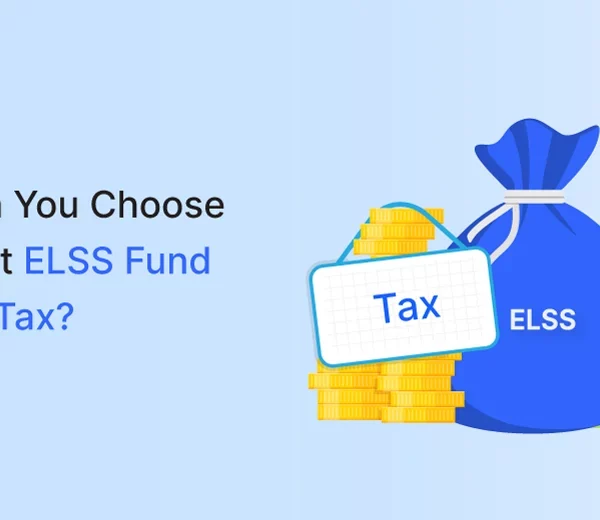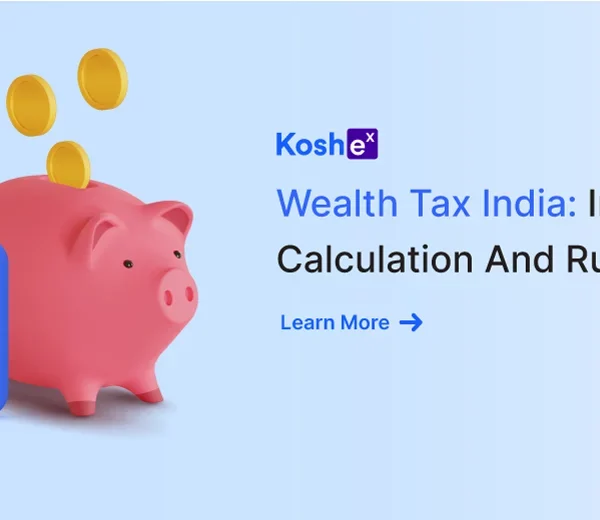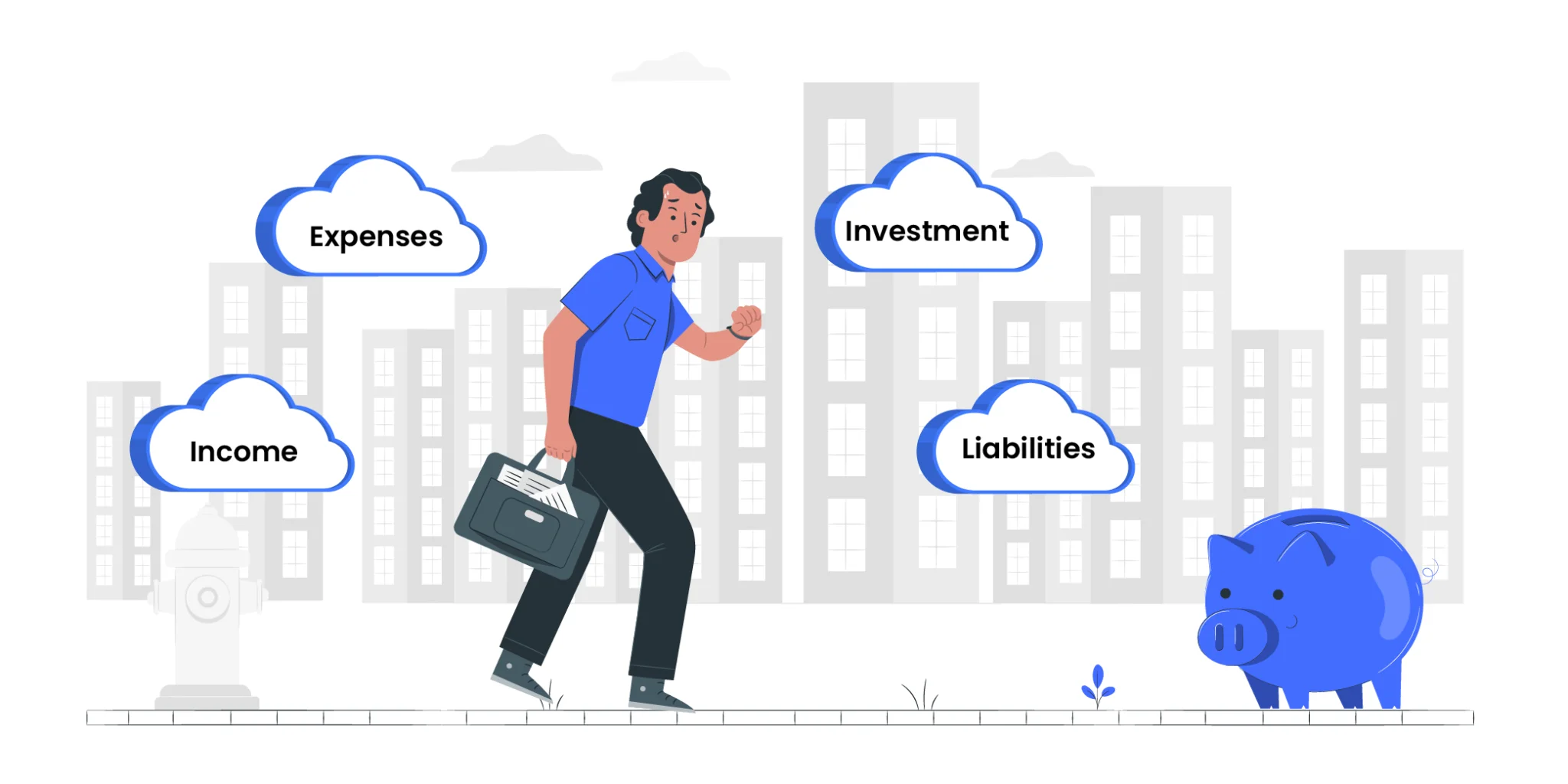Investing in Fixed Deposits (FDs) is one of the safest options with the guarantee of assured returns, which is why many people in India continue to invest in FDs.
However, with declining interest rates, these instruments are losing their sheen to more attractive investment options, such as mutual funds, which provide much better returns over the same or similar tenure (however, they are volatile as compared to FDs and hence, one can invest in them only after considering their risk appetite).
Considering these changes in the investment landscape, many banks have started providing additional benefits such as health insurance covers along with FDs to make them a more attractive investment vehicle for customers.
The Fixed Deposits with health benefits have minimal coverage with the inclusion of only one of the health insurance features like either pharmacy expenses or some critical illnesses but do not cover all ailments and also the coverage amount may be restricted to around 2 lakh rupees.
However, are FDs worth investing in with these additional benefits? Let’s find out:
Features of FDs with Health Insurance Benefits
Tie Ups:
Banks providing these types of FDs have tie-ups with general insurance companies.
Rate of interest:
The rate of interest on these FDs is the same as that of normal FDs.
No extra cost:
One major benefit is that such FDs provide health insurance coverage at no extra cost to the investor (however, it is advisable to enquire with the bank whether the insurance benefits are available without extra cost or not as their rules might change).
Eligibility:
The eligibility criteria for investing vary from bank to bank. Usually, the age range is 18 to 70 years. However, some banks limit the age to 50 years or 60 years.
Tenure:
The tenure of these FDs differs with some banks offering a compulsory tenure of 700 days (DCB Bank) while some banks opt for a tenure of 2 years (ICICI Bank).
Claims:
One of the most important things to note is that the bank offering the FDs with these benefits is not the insurance provider; it is instead an insurance company that has tied up with the said bank. Therefore, if a claim comes up, you’ll have to contact and coordinate with the insurance company, not the bank.
Coverage:
These FDs provide very limited coverage. For example, ICICI Bank’s FDs provide a health cover of only ₹1,00,000.
Investment amounts:
These FDs have a ceiling on the minimum and maximum amount that can be invested, with the minimum amount required to be invested, is between ₹10,000 and ₹ 5,00,000 and the maximum amount can be between ₹3,00,000 and ₹1.99 Cr.
For example, DCB bank offers these FDs with a minimum investment of ₹10,000, whereas, ICICI bank provides these FDs with a minimum investment of ₹2,00,000, HDFC bank offers FDs with a minimum investment of ₹5,00,000 and maximum ₹1.99 Cr.
The cover:
These differ from bank to bank; some banks offer outpatient department and in-patient department treatment costs, treatment costs covering certain critical illnesses, and hospital cash cover. However, it is pertinent to note that these plans do not provide comprehensive coverage compared to the plans offered directly by health insurance companies.
Duration of cover:
The duration of cover offered differs from bank to bank; sometimes it does not last the tenure of the FDs and is only offered for one year, with an option to renew.
Pre-mature withdrawal:
In case there’s an emergency and one wishes to break these FDs, then the health coverage from these FDs gets canceled.
Should someone opt for These FDs?
At the end of the day, these FDs come with almost the same tenure and interest rates compared to normal FDs and they do not provide any extra returns. Also, the cover provided by these FDs is limited.
If we are looking at these instruments as a replacement to a comprehensive health insurance plan or for treatment of a serious health issue, we must avoid investing in these FDs and go for medical insurance that is comprehensive and is more beneficial in this case.
Some FDs require you to stay invested for a longer duration to claim the benefits of health insurance. However, this might not be suitable if we are looking to invest for a shorter duration.
Most of these FDs only cover the first holder or first depositor and they do not cover all diseases and only provide limited benefits. For example, some of these plans cover only certain illnesses, some cover only medical expenses, and some only provide OPD consultations.
To conclude, if we are looking to invest in FDs with health insurance benefits, we must read all details, including coverage for certain ailments, the amount of coverage, the minimum and maximum amount required to be invested, contact details in case there is a claim and factor in our existing circumstances and existing health coverage.
One important point to keep in mind here is that the health insurance benefit is available only till the period of FD, in case of premature withdrawal the health insurance benefits will also cease to exist.
Hence, these FDs should not be considered a complete replacement for a comprehensive health insurance plan and should only be regarded as a buffer to your existing health insurance. sign up with Koshex
Frequently Asked Questions (FAQs):
Do these FDs provide monthly/quarterly/yearly or cumulative interest payouts?
As these FDs are similar to normal FD schemes, the interest payout frequency is also similar to that of normal FDs. However, it is advisable to contact the bank regarding opting for interest payout frequency.
Is TDS applicable on interest on these FDs?
Yes, TDS is applicable on these FDs as per the current Income Tax rules and regulations.
Do I have to pay any premium for health insurance?
No, you do not have to pay any extra amount in the form of a premium because health insurance plans are provided by the banks at no extra cost to you (But, it is feasible to ask the bank if they charge any amount after a certain duration).
What are the terms and conditions in case of a claim?
The terms and conditions will differ from bank to bank and from insurance provider. Before investing in these FDs, you must go through all terms and conditions of the said plan as well as entities covered under the health insurance plan.
What documents are required for these FDs?
The documentation differs from bank to bank. The most common documents required are a PAN Card, Aadhar Card, residential address proof, mobile number, email ID, declaration in the form of any prevailing health conditions, and so on.









Leave a Comment